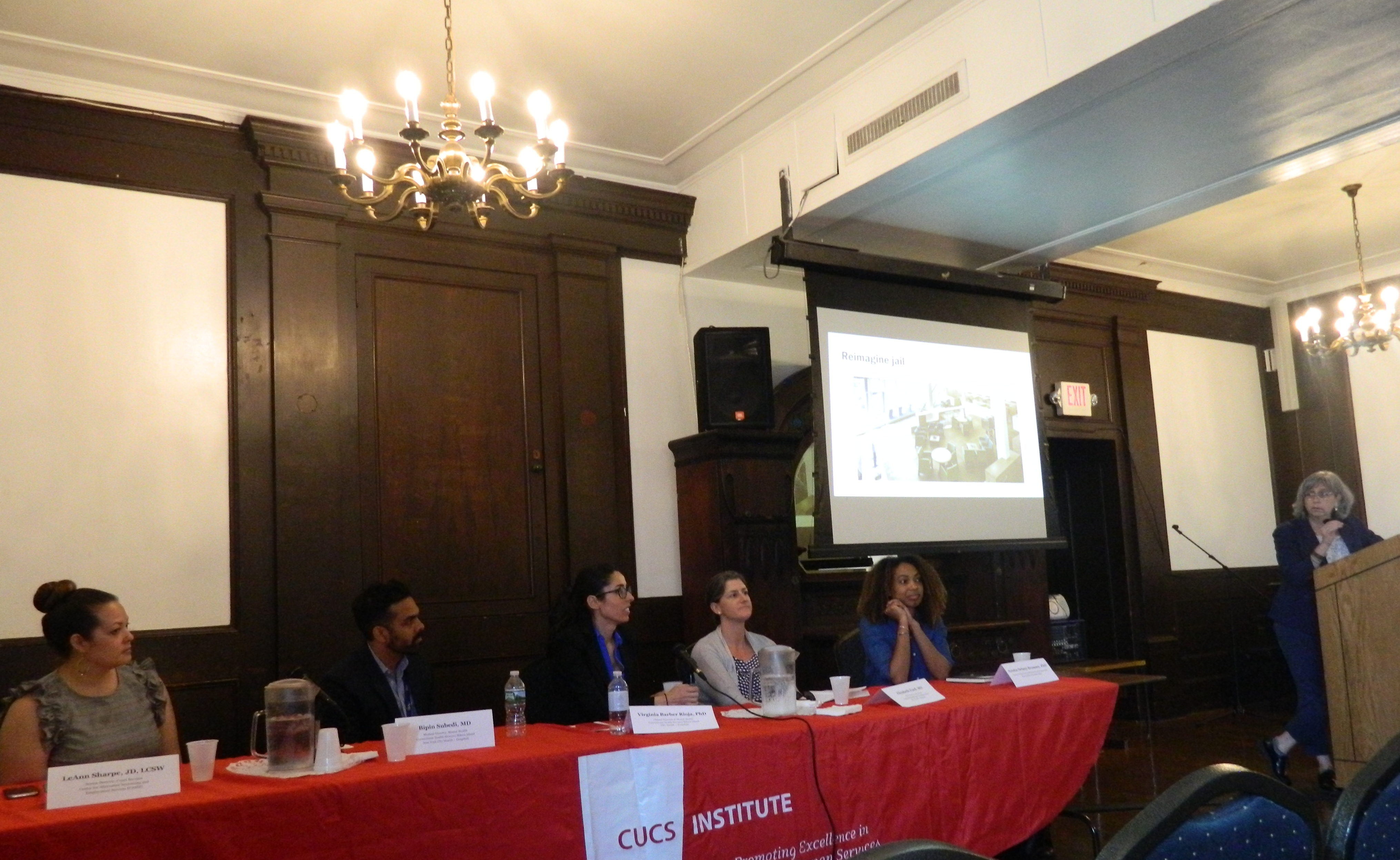Blog

The Path to Closing Rikers
June 28, 2018On the morning of June 18th, an eager audience trickled into a conference room at the New York Ethical Culture Society for a timely, yet divisive, topic: the closing of Riker’s Island. Organized by CUCS’s Academy for Justice-Informed Practice, panelists came together to discuss The Path to Closing Rikers and more specifically, what it means for justice-involved people with significant behavioral health needs.
Rikers is scheduled to close in 2027, to be replaced by smaller, safer, borough-based jails. The panel consisted of five professionals working to meet this goal. Susan Batkin, Program Director of the Academy, started the panel off by introducing the first speaker, Dr. Ayesha Delany-Brumsey.
Dr. Delany-Brumsey, Director of Behavioral Health Research and Programming at the Mayor’s Office of Criminal Justice, discussed the City’s strategies to reduce the number of people entering Rikers from a daily census of over 8000 to 5000. She emphasized that they aim to narrow the front door so people can be diverted from jail into community programs. Toward this end, the City is increasing the number of programs that offer supports, services and supervision in the community in lieu of detention or incarceration when it is deemed appropriate.
Next, LeAnn Sharpe, Senior Director of Court Services at the Center for Alternative Sentencing and Employment Services (CASES), discussed the supervised release program CASES offers to people as a bail alternative. She explained that the program offers consistent, need-based support to clients to help them return to court for their appointments, while offering them help with problems such as lack of housing or employment, addiction assistance and any other issue that may keeping them at risk. This personalized care can be crucial for people with mental illness who may have trouble navigating court appointments and often end up back in jail for failure to appear in court.
After a break, three panelists from Health and Hospital’s Correctional Health Services at Rikers Island, Dr. Virginia Barber Rioja, Clinical Director of Mental Health, Dr. Elizabeth Ford, Chief of Service for Psychiatry, and Dr. Bipin Subedi, Medical Director for Mental Health, spoke about Rikers’ current efforts to improve jail-based psychiatric care, substance use treatment and social work, and reentry services.
Their primary goal is to improve services on the inside for people with serious mental health needs while also providing linkages to services to people in the community upon their release, to help them avoid future criminal justice involvement. Dr. Ford stressed that while Rikers is on the path to closing, city jails are not. The ultimate goal is to transform jails by making them smaller, safer and closer to borough-based courts and communities. In addition, jails will offer more programs and services to help people address problems that can help them avoid further criminal justice involvement. To that end, they emphasized that they are working to strengthen the clinicians on their staff, increase group therapy programs, streamline the diagnosis process upon intake and continue to work on best practices in treating people with mental health issues in jail.
At the end, the audience had the opportunity to ask questions. Many asked about the logistics of the new jail system, wondering what the population of these jails would look like, how they would interact with their communities and how consistent care would be delivered to people in these smaller, less centralized institutions. The panelists pointed out the details are still being finalized and they are making it their priority to meet people’s needs and improve their conditions through the new system.
As the panel closed, audience members thanked the panelists for their insight. The path to closing Rikers is complex, but this panel gave people who work with justice-involved clients on a daily basis the opportunity to better understand the process through the lens of the decision makers.
